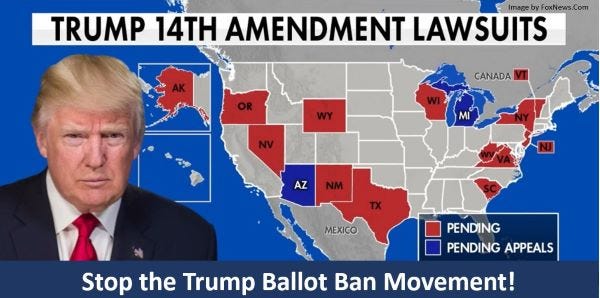Massachusetts Supreme Court Upholds Trump Ballot Eligibility
Election Interference Scheme Falls Flat Again
In a recent decision, Massachusetts Supreme Court Justice Frank Gaziano rejected a petition aiming to prevent former President Donald Trump from appearing on the Republican primary ballot in 2024. The challenge, brought by a civil rights group and a local law firm, argued that Trump's candidacy violated a constitutional clause disqualifying individuals who have "engaged in insurrection or rebellion." However, Trump has not been charged or indicted for insurrection.
The petition followed a rejection by the Massachusetts State Ballot Law Commission, which cited the 14th Amendment as the basis for allowing Trump's candidacy. The 14th Amendment disqualifies public officials engaged in insurrection or rebellion from holding public office.
Similar challenges are ongoing in other states, including Maine and Colorado. In Maine, the Superior Court ordered Trump back on the ballot while awaiting a US Supreme Court decision. Trump has appealed the decision by the Colorado Supreme Court to bar him from the 2024 ballot, asserting that these challenges undermine the constitutional requirements for presidential eligibility.
It is crucial to note that the U.S. Constitution outlines three primary requirements for individuals seeking the presidency: being a natural-born citizen of the United States, attaining a minimum age of 35 years, and having been a resident of the United States for at least 14 years. These constitutional criteria form the basis for evaluating the eligibility of any candidate, and legal challenges must align with these established standards rather than speculative claims of insurrection or rebellion, which, in Trump's case, have not led to formal charges. As these legal disputes unfold in various states, the focus remains on upholding the constitutional prerequisites for presidential candidates.
Special Offer:






